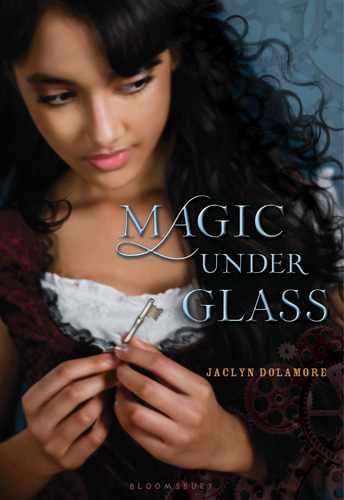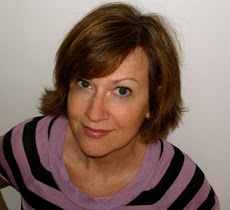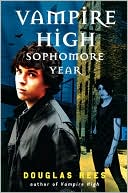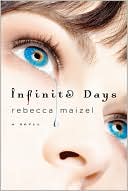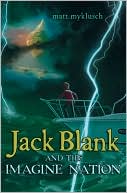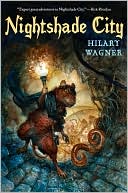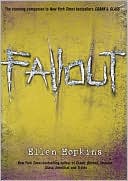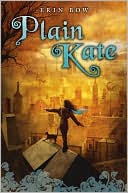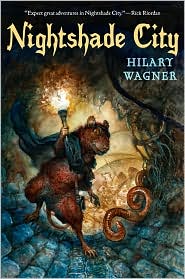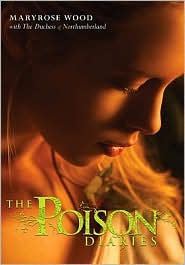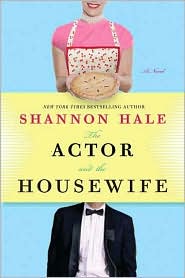Everyone has a story like this. Whether you're white or non-white, the racial majority or the racial minority, you've probably had an encounter with racism that you still remember as That Moment for the rest of your life. Here's mine:
I was in early middle school, 6th, 7th grade, maybe. My family had gone out to the all-you-can-eat buffet lunch at Pizza Hut with several other families. We were all close, due to similar cultural extracurricular activities and the same age range for the children. We kids chowed down our pizzas, breadsticks, and sodas, hungry rascals that we were, and began to get restless while the adults ate leisurely and chatted with one another. I pulled out a deck of cards and engaged some of the others in a game, but 52 cards is not enough to entertain 15 or so kids, and so inevitably there was lots of running, shouting, and being hyper kids at a pizza parlor.
So kids were running around and we were all in general making a lot of noises when one of the mothers caught some of the kids as they raced by the tables for the fifth or so time. "Settle down!" she ordered us in Chinese. "We're the minority, we have to be quiet!"
Now.
In her defense, rowdy kids in a restaurant should definitely be taught to be more considerate of other patrons and their surroundings, even in a family-oriented location.
Aaaaand that's about all I can say for her argument.
I was shocked. Seething with anger. Humiliated for my own race. Disappointed that someone so well educated, so well respected amongst our community, so looked up to by me and others, would say such a thing to kids, teach us, even unintentionally, that this sort of subservient inferiority thinking is acceptable. It's been probably 10 years since the incident, and my heart still clenches whenever I think of it, that day when I lost respect for someone I admired, that day someone--someone
of my own race, no less--took my racial identity and slammed it in my face, pressuring me to conform to "acceptable" behavior and beliefs for my race.
Perhaps one might argue that being Asian is not quite as "difficult" as being a member of another race or ethnicity. Asians are considered to be in a similar position as Jews in many ways in American society. We have light skin, generally perform well in school, and obey rules; a large percentage of Asians live in comfortable socioeconomic brackets. To many, Asians do not come to mind when the word "minority" and its stereotypical implications arise. In fact, Asians were held up as the "model minority" back in the fifties and sixties, as an example of what minorities can accomplish if only they put themselves into it and stopped blaming society and situation for their troubles. [
Edited to fix ambiguous statements that could've been misconstrued. Thank you, Linda!]
But what we, over many other racial and ethnic groups, have acquired is a passive acceptance of the beliefs and treatment others subject us to. Many Asians do not have that much of a problem being considered the nerd-smart, obedient, socially awkward race. Better than being considered the hoodlum, or the troublemaker, or the good-for-nothing...right? It is, however, our own quiet acceptance of others' assumptions of what our race is like that ensures our position as a racial doormat.
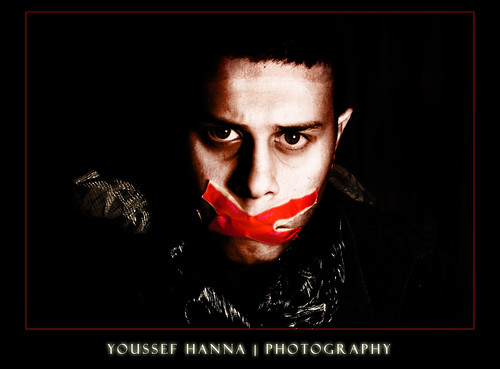
The problem is that Asians self-perpetuate these beliefs of obeisance, one generation after another. The family friend at the pizza restaurant tells us kids to be quiet because we're the minority, thus we shouldn't attract attention to ourselves. She acknowledged that we may be disturbing the other restaurant patrons, but instead placed the responsibility on society's expectations of our race to be meek and complacent. A white mother would've said to her rowdy white kids, "Settle down! You're in a restaurant, not a park. Don't disturb the other patrons with your noise." Her argument is much more situational and individualistic. The kids are held accountable for their own behavior, not the image of an entire race.
I realize there are cultural discrepancies in these two mothers' different reactions to their disruptive kids. You know, East vs. West, collectivism vs. individualism, the sort of thing you study in psych, history, or soc-anth classes.
But if we--and by "we" I don't mean just Asians, but everyone else in this whole damn world--continue to allow this racial self-policing to continue, then it's no wonder that white values continue to be considered superior, preferred. It's no wonder that Asians get pigeonholed into certain "types" of personalities and careers, and no wonder that some Asians' backlash to their own culture is so striking and self-hating. It's no wonder that Asian models get taken off the covers of Asian-set or Asian-themed books.
 |
I encourage you to click to enlarge
this image so you can check out the
words below "Olive Crown." |
Forget about democracy and equality and diversity: really what has been going on in many institutions, not just the book publishing industry, over the past decades and centuries is the
"deracialization" of races that are considered less, the ones that are not "white enough." When I visit Taiwan and walk the streets of Taipei, I'm bombarded with white models blown up dozens of feet high on billboards, beauty parlors advertising their ability to make you blond, selling products to whiten your skin. Asian women undergo surgeries on their eyelids to achieve the wider-eyed, double-folded lid look that--you guessed it--makes them look more white. And I just watched the Chris Rock documentary
Good Hair recently, and there are all sorts of reasons that go into why black women spend so much money relaxing their hair or getting weaves. And not all of it has to do with vanity, but rather with a view that society has ingrained in them that relaxed, flowing hair is not only more beautiful, but also looks more professional in the work force.
And whereas you can walk into a school and see groups of black or Latina ladies expressing their pride at being black or Latina, you don't find the same with groups of Asian friends. Asian girls will typically flaunt their Asianness in a subconscious subjection to archaic Orientalist attitudes. Their thinking is, "I'm glad I'm Asian because I have great hair / age well / guys of all races think I'm cute." It's not, "I'm proud to be Asian for me and ME ALONE" the way black women can often say so about their race. Asians are constantly thinking of themselves in terms of other people. And yes, that's part of our Eastern culture as well, this attention to interpersonal connections as the primary way of validation of self, but that absolutely does not give other races and ethnicities the right to walk all over us.

Because we are not the proud stars of our own stories, but rather the spectators and secondary characters to others'. We are always the best friend, never the protagonist. When I look at book covers featuring white models representing protagonists that I end up loving and relating to, I subconsciously associate myself with these white characters. It is my "Twinkie-ness" (yellow on the outside, white on the inside) that allows me to enjoy YA books.
Reading YA lit the way it's currently jacketed takes away from my Asian identity, because both white society and my own Asian one do not allow for Asians to take a starring role.
Large chain bookstores would not buy Cindy Pon's
Silver Phoenix because there was a proud Asian model in traditional Chinese garb on the cover. It's a beautiful, stunning, breath-taking cover, one that had me lusting after it for the fact that it had an Asian girl on the cover alone. Replacing the gorgeous, racially correct cover with a racially ambiguous, awkwardly posed and accessorized Darkest Powers trilogy lookalike offends me.
It sends the message that being Asian and proud is not okay. By any standard of 21st-century human rights, is that an acceptable message to send to teenagers?
So we Asians are never going to leap to our feets, wolf-whistle, cat-call, and give rowdy standing ovations in concerts, like the mostly black audience did at the incredible Chester Children's Choir concert I attended at my school over the weekend. Our family and friend gatherings are most likely not going to spill into the streets and be full of color, noise, and spice until the wee hours of the morning. We don't yet lead in the way Western society perceives leaders: as outspoken, well-spoken, and progressive activists.
But to tell--directly or indirectly--an Asian teen that the only way he/she can have "fun," can be him- or herself, is by rejecting their Asian-ness and immersing themselves in white culture... that's plain offensive. It's inhumane.
Society--especially mostly white, American society--has made it an uphill battle for me to understand and embrace my Asian identity. As a teenager I think I would've died from happiness had there been more books with Asian characters and Asian cover models. In a world where popular media inevitably colors our perceptions of racial and ethnic acceptance, it is all the more important that something as trite ("don't judge a book by its cover") yet as monumental (covers are an important selling point for books) as book covers accurately and
actively portray the truth about the world's diversity.
Sure, reading fiction can be escapism for the majority of the time. But part of what's so appealing about reading fiction is its relatability, be it contemporary realism or hardcore sci-fi/fantasy. We appreciate--nay,
adore--characters whom we can understand, characters whom we can picture ourselves acting like if we were in their situation. Readers are not going to freak out if the MC of a book is of a different gender/race/ethnicity/religion/sexual orientation than them. If that happened, I'd already be wallowing in the scanty, unfortunately rather monotonous Ethnic Literature section with the likes of Maxine Hong Kingston and Amy Tan. POC readers have long read literature featuring white protagonists...and many have enjoyed those books. Why are we assuming that white readers can't do the same? If we call for diversity, why the need to stifle important identities and physical and cultural features of a significant portion of our population?
Let's not demean YA readers' intelligences, please. When we pick up a book with a POC character and see a model of a different race on the cover, we're not going to think, "Oh, YAY! Pretty, beautiful, consumer-happy-making cover!" We are going to think, "Um, hello, did the publishing house not read the book or something? Why is there a white person on the cover when the MC is clearly Asian/black/Latino/etc.?" We're not stupid. We're not unobservant. Give us more credit than that.
Let's have covers and stories that more accurately portray the wide range of beautiful, unique, talented, smart, funny, and, yes,
weird people in our world. You want to continue to earn more money, industry people? You want people to continue to love reading, to continue to buy books? Then enter the 21st century and embrace CHANGE, like every single industry and organization out there needs to be doing. Cookie-cutter Wonderbreadland white characters and settings are no longer cutting it. Books should help expand our worldview, not stifle it. The 20th century was full of progress in the human rights field: integration of schools, businesses, and facilities; affirmative action; opening old and prestigious colleges and universities to women.
Let's not take steps backward now.
[Note: This post was inspired by Ari at
Reading in Color, who wrote a
frustratingly sad post about the
Silver Phoenix cover change. Head over to
her post to find more links to similar posts written by other bloggers.]
-
Readers: If you are comfortable doing so, please feel free to share your experience with racism either here or in your own post. I welcome your comments, whether you agree or disagree with me. I don't really care what the details of your own opinions on this issue are: it's more important that people talk about this in any degree, and continue talking about it.












